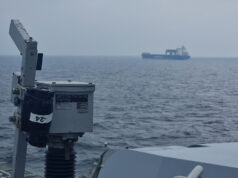In a world shaped by intensifying competition between democracies and authoritarian regimes, Britain’s World, the Council on Geostrategy’s online magazine, offers a compelling deep dive into the geopolitical dynamics set to dominate 2025.
In its latest Big Ask feature, titled “Which geopolitical trends will dominate in 2025?”, 11 experts present a nuanced analysis of the global challenges ahead.
The emergence of the so-called CRINK axis—comprising China, Russia, Iran, and North Korea—is highlighted as a key driver of instability. According to William Freer, Research Fellow on National Security, these regimes are pushing to dismantle the global order:
“Leaders in Beijing and Moscow know that the period from now until the mid-2030s is their best chance to dismantle the prevailing international order.”
Freer warns that the UK must adapt to this shifting landscape:
“2025 will be the year where leaders will have to decide whether a serious change in course is required… The necessary level of political will and resources needed to make good on these statements is yet to be seen.”
Neil Brown, Distinguished Fellow at the Council on Geostrategy, anticipates further fragmentation within the Euro-Atlantic alliance. He observes:
“Europe will fall further behind, given political and economic weakness in its largest economies… This will undermine clarity of EU thinking on global risk.”
Compounding this, the return of Donald Trump to the White House may provoke European leaders to advocate for greater strategic autonomy, further testing transatlantic ties.
Charlotte Kleberg, Associate Fellow, underscores the growing importance of maritime geopolitics:
“Vital sea lanes will continue to be contested, and the competition for resources will intensify.”
Kleberg highlights the South China Sea and Arctic regions as flashpoints, with nations increasingly focusing on protecting critical infrastructure and supply chains.
Dr Emma Salisbury, Research Fellow on Sea Power, warns of the rise of grey zone activities targeting civilian infrastructure:
“How serious and attributable does a cyber-attack or a cable cutting incident have to be to warrant a military response? How many violations of international law can a state commit before there are consequences?”
The ambiguity surrounding these actions complicates international responses, leaving democracies vulnerable to coercive tactics.
Jack Richardson, Associate Fellow, identifies climate change as a geopolitical battleground. With the US potentially withdrawing from the Paris Agreement again, Richardson argues that:
“2025 will require more effective and creative mechanisms for carbon mitigation than arguments over abstract emissions and finance targets.”
The UK’s energy policies will need to balance trade with China, incentivising domestic manufacturing while navigating global supply chain complexities.
Britain’s World: A Platform for Strategic Insight
This edition of Britain’s World exemplifies the magazine’s role in delivering expert commentary on pressing geopolitical issues. By featuring contributions from academics, policy experts, and former officials, the magazine provides a rich tapestry of perspectives on Britain’s place in an increasingly complex world.
For more detailed insights and to read the full article, visit The Big Ask: Which geopolitical trends will dominate in 2025?.













George, headline may need attention?
Give the chimp that writes the headlines another banana.
Advise? That’s the verb.
Do you mean advice the noun?
Do you need some help with the editing dear?
It is a verb in the title.
The CGS advise on Global Trends to watch for.
I’ll give it that the word order is perhaps unusual, in that it sounds as though the trends are doing the advising ! It’s almost a German sentence pattern, if we treat the first part as a compound noun.
This is the key question, can NATO fight, stay together and win a long drawn out war ( over years) with china, Russia ( and its 5 CTOL members) Iran ( and its proxies) and NK at the same time across 3 continents and all the major occeans and seas..